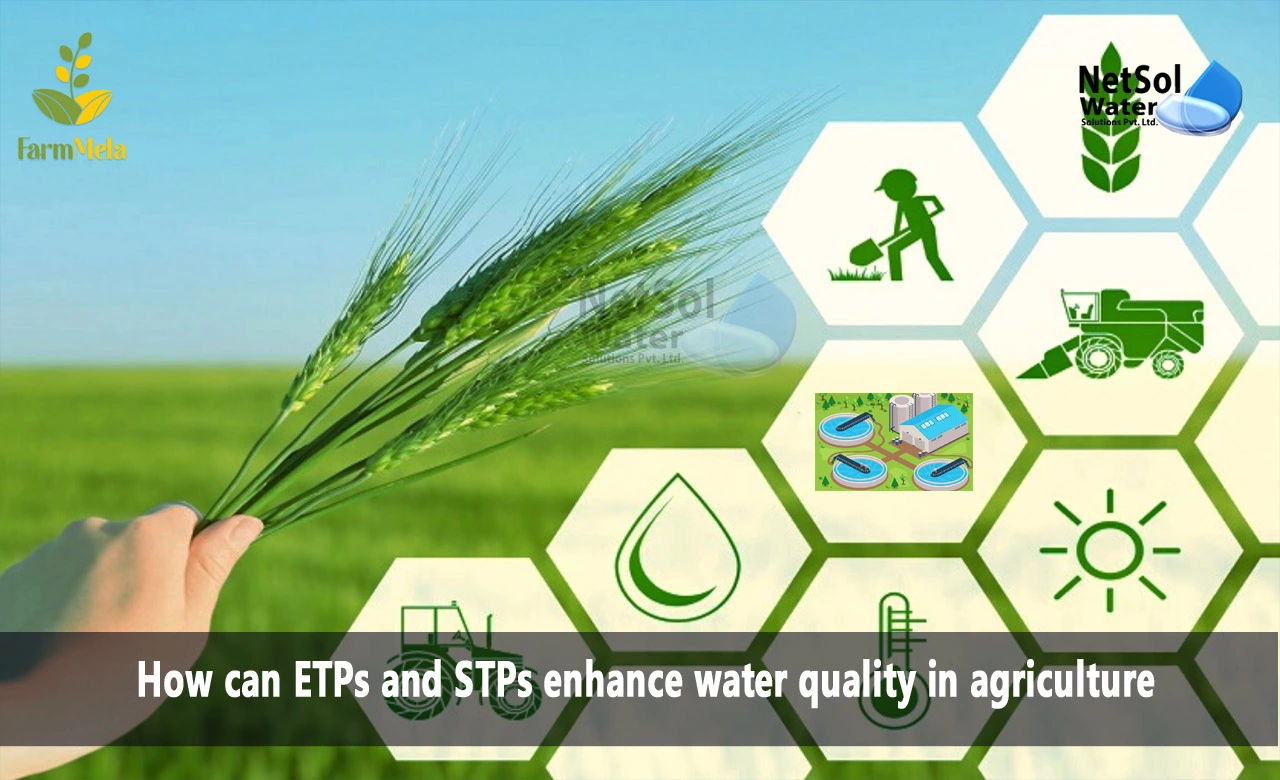How Can ETPs and STPs Enhance Water Quality in Agriculture?
Water is a treasured aid for agriculture, and its first-rate notably impacts crop productiveness and the surroundings. Ensuring that water used for irrigation is free from pollution and pathogens is vital for sustainable farming practices. Effluent Treatment Plants (ETPs) and Sewage Treatment Plants (STPs) are critical in enhancing water satisfaction in agriculture. This blog explores how ETPs and STPs can contribute to cleaner and more secure irrigation water, benefiting farmers and the environment.
1. Removal of Contaminants
ETPs and STPs are designed to deal with wastewater from diverse sources, which include industries, households, and industrial institutions. These treatment plants use an aggregate of physical, chemical, and biological processes to remove contaminants, consisting of suspended solids, heavy metals, and pathogens, from the water.
When the treated effluent from these plants is used for agricultural irrigation, it extensively reduces the chance of contaminating the soil and plants with harmful substances. This ensures that the water applied to the fields is of higher quality and safer for each crop and those eating the produce.
2. Pathogen Elimination
One of the primary worries in agricultural water is the presence of sickness-inflicting pathogens. Untreated wastewater can deliver a host of microorganisms, consisting of micro organism, viruses, and parasites, which could result in the contamination of vegetation and pose health dangers to clients.
STPs are especially effective in disposing of those pathogens through disinfection and sterilisation. By the use of treated sewage water for irrigation, farmers can decrease the risk of pathogen transmission to plants, ultimately central to safer and healthier produce.
3. Nutrient Recovery
Wastewater from home and commercial resources frequently includes valuable nutrients which include nitrogen and phosphorus. ETPs and STPs can get these nutrients and rework them into forms that may be used as fertilisers in agriculture. By recycling these nutrients, the need for artificial fertilisers is reduced, which advantages both the environment and the farmer's bottom line.
4. Sustainable Water Management
Using handled wastewater for irrigation reduces the call for freshwater resources, which is particularly critical in regions facing water scarcity. ETPs and STPs permit the recycling and reuse of water that could, in any other case,be waste. This sustainable approach helps preserve soil moisture and supports crop increase at the same time as retaining valuable freshwater assets for different vital uses.
5. Environmental Protection
By treating wastewater earlier than its miles launched into natural water bodies, ETPs and STPs make contributions to the protection of aquatic ecosystems and the preservation of biodiversity. This, in flip, blessings agriculture with the aid of retaining the ecological balance and making sure the supply of clean water sources for irrigation.
Challenges and Considerations
While ETPs and STPs offer several benefits for boosting water in agriculture, there are some demanding situations and issues to hold in mind:
1. Infrastructure Investment: The creation and preservation of ETPs and STPs require significant investments, which may also pose a monetary burden for neighbourhoodgovernments or groups.
2. Regular Maintenance: Effective operation of these treatment plant life relies on regular preservation and skilled personnel, which can be a task in some areas.
3. Public Perception: There may be resistance or issues from the public about the usage of wastewater in agriculture. Effective verbal exchange and attention campaigns are critical to cope with these concerns.
4. Regulatory Compliance: Ensuring that wastewater meets all relevant safety and quality standards is critical for its safe use in agriculture.
Conclusion
Effluent Treatment Plants (ETPs) and Sewage Treatment Plants (STPs) are necessary for boosting water in agriculture. By disposing of contaminants, putting off pathogens, recuperating precious nutrients, and selling sustainable water control, those remedy centers guide each the surroundings and the farming network. With careful planning, practical implementation, and the support of applicable regulations, ETPs and STPs can assist in ensuring purifier and more secure irrigation water, contributing to a more sustainable and resilient agricultural sector.
Netsol Water is Greater Noida-based leading water & wastewater treatment plant manufacturer. We are industry's most demanding company based on client review and work quality. We are known as best commercial RO plant manufacturers, industrial RO plant manufacturer, sewage treatment plant manufacturer, Water Softener Plant Manufacturers and effluent treatment plant manufacturers. Apart from this 24x7 customer support is our USP. Call on +91-9650608473, or write us at enquiry@netsolwater.com for any support, inquiry or product-purchase related query.



